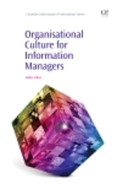Conclusion
For information managers, understanding and getting to grips with organisational culture is difficult but necessary. One of the key points to bear in mind, which has hopefully become clear throughout this book, is that there will be significant features which cannot be changed. These features could be linked to national or occupational cultures, or the structural environment which encompasses language, technological infrastructure and legislation. What is important, however, is to be able to distinguish and map these features, so that strategies can be developed which will take them into account. The alternative is that information managers will invest much time and energy into developing well-intentioned proposals or services that may be doomed to failure at the outset.
Awareness of the complexity of influences which contribute to shaping organisational culture is essential in our globalised world. Organisations conduct business beyond national boundaries; economic forces motivate the establishment of off-shore enterprises; and the boundaries of organisations are no longer likely to be fixed to one precise geographical location. International recognition of qualifications opens the doors for greater mobility of employees, so that the staff of an organisation may comprise a wide-ranging mixture of people with different values and attitudes towards information. Similarly, information managers also have greater opportunities for employment in unfamiliar environments. All of these situations call for greater acknowledgement of organisational culture and its influence on the way that information can be managed.
Focus on ‘information culture’ will help avoid getting caught in the terminology trap that besets the concept of organisational culture. The misconception of organisational culture as an entity that can be shaped and moulded as required is particularly prevalent in those parts of the world influenced by Anglo-American management theory. Trying to argue the case for a more nuanced understanding of organisational culture may well appear overly pedantic, so information managers are well advised to steer clear of all possible ambiguity and use the opportunities afforded by the concept of information culture.
The framework provided in this book is intended as a practical tool for the assessment of information culture, and therefore a basis for action. There is much more research and analysis necessary to test and refine the utility of this model, but it should be viewed as a starting point. Unless we collect data which can be used to inform decision making, the practice of information management in organisations will continue to be haphazard and uneven. Information managers need to demonstrate their awareness of the complexity of the organisations they work within, and thus ensure that they continue to be able to play a central and highly valued role. In today’s challenging information environment, where every employee may have access to immense information resources from their desktop, information managers risk being regarded as unnecessary. The paradox is, of course, that information managers are even more essential than ever before, but our practice must be more attuned to our local operating environments. The sophistication necessary for this to happen can only come about by engaging with organisational, and therefore information, culture
